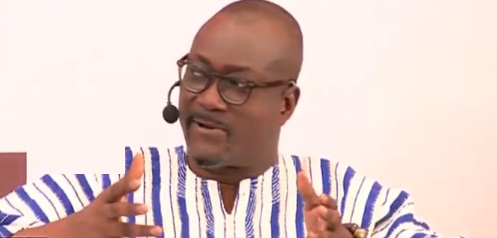The Executive Director of the Centre for Democratic Development, CDD Prof. H. Kwesi Prempeh says corruption cannot be dealt with entirely by using prosecution and judicial processes.
According to him, prosecuting people liable to the menace yields little results in corruption fight in the country.
He said the traditional tool in corruption fight in the country has led to the conviction of few people who engage in the act since the 4th Republic.
Speaking on Newsfile today December 28 2019, Mr Prempeh stated that other alternatives in addressing the issue of corruption must be adopted.Â
''In fighting corruption you cannot put all the eggs in one basket. You cannot deal with corruption by using the traditional tool which is prosecution and going to court. We have used only that one tool since the 4th Republic. If we are going by prosecution and judicializing the process you will think there is no corruption in the country at all. That tool has yielded very little results. We have not convicted a handful of people on corruption since the 4th Republic yet we know that is not the full measure of the scale of corruption''.
''For me things like prosecution and judicialization of the process not that they don't matter. They come too late at the backend of the transaction which sometimes does not yield a lot of fruit''. Other ways must be brought in to help fight corruption," he added.
READ ALSO: Digitisation will be disruptive to corruption Bawumia
The Centre for Democratic Development released the latest Afrobarometer report which showed key public officials in Ghana, the police, judges and magistrates, Members of Parliament, civil servants, and tax officials were most widely perceived as corrupt.
According to the report the Ghana Police Service topped the most corruption perception rankings in the country, with many Ghanaians often expressing their belief that police officers are corrupt.
Even though the government has always insisted on leading a successful fight against corruption in public life, more than half of respondents believe that the level of corruption in the country has increased.
The report also indicated that government is rather performing poorly to fight the canker.
In the same report, it revealed that the government’s anti-corruption efforts have declined sharply since 2017 after more than doubling three years ago.
Also, Ghana ranked 78th out of 180 countries on Transparency International’s Corruption Perceptions Index for 2018.
Again the report noted that more than half (53%) of Ghanaians say corruption in the country has worsened “somewhat†or “a lot†during the year preceding the survey, a 17-percentage-point increase compared to 2017. This follows a huge (47-percentage-point) improvement between 2014 and 2017.
READ ALSO:Â Judicial corruption must be a thing of the past - Akufo Addo to Judges
The survey showed that the Army, religious leaders, and the presidency were seen as the most trusted public institutions while opposition political parties, local government officials and tax officials are least trusted.
The police were also the institution that the largest number of citizens report bribing to access services.
Among those who had contact with key public services during the previous year, four in 10 say they paid a bribe to avoid problems with the police (42%) or to obtain police assistance (39%).





